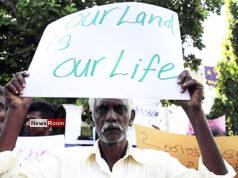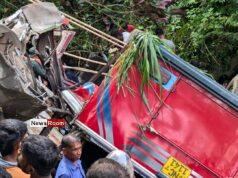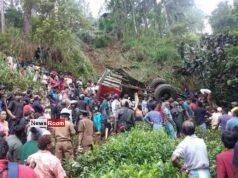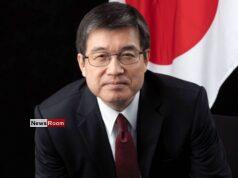ECONOMYNEXT –Fresh discussions between President Ranil Wickremesinghe and the opposition TNA has focused on the release of political prisoners and lands in former conflict zones, a TNA legislator said.TNA parliamentarian M A Sumanthiran told reporters that the discussion followed an all-party meeting held recently on finding a permanent solution to Sri Lanka’s ethnic issue.
“Last week we had an all party conference on reconciliation. We had a discussions with he president today on how to take the programme forward.
“As priorities, we discussed the release of political prisoners. It was understood that five can be released already. The Attorney General will advise on the others,” said Sumanthiran.
The MP said his party was told at the meeting that a discussion had been held with the Sri Lanka Army on the topic of releasing land.
“It was said that some recommendations will be made at the national security council meeting on Jan 3 and permission will be given for that,” he said, adding that the release of other lands is also expected to be taken up for discussion.
“We plan to meet again on Jan 5 to discuss the next course of action,” said Sumanthiran.
Asked if the ongoing talks on reconciliation have been successful, he said: “Yes the discussions were a success but nothing has come out of it yet. Only when the decisions are implemented can we comment on their success.”
In late November, the TNA accepted an invitation by President Wickremesinghe to engage constructively in sincere attempts at resolving the ethnic issue. Speaking in parliament on November 23, the MP said the TNA was open to a federal solution.
Wickremesinghe had previously re-extended an open invitation to opposition parties to a discussion on a permanent solution to Sri Lanka’s decades-long ethnic problem.Following this, talks began after Dec 11 with a view to agreeing on a solution by Feb 04, 2023 when the island nation celebrates 75 years of independence from the British.
Among the issues that Sri Lanka is confronted with with regard to reconciliation between communities is the matter of alleged human rights abuses, particularly during the final phase of the 26-year armed conflict. Missing persons, militarisation and alleged land grabs have also figured prominently in various international fora where Sri Lanka’s human rights record has come up for discussion.
Some have proposed the 13th amendment to the constitution as a possible lasting solution to the issue. The amendment emerged out of the controversial Indo-Lanka Accord of 1987 as a purported solution to the worsening ethnic conflict. Provincial councils came in the wake of this amendment, but land and police powers have yet to be devolved to the provinces as originally envisioned. Both Sinhalese and Tamil nationalists have opposed the 13th amendment, the former claiming it devolved too much, the latter complaining it didn’t devolve enough.
Federalism, which the TNA has said it is open to, has been a highly controversial and politically inflammable idea in Sri Lanka over the years, with many nationalist or even some moderate parties in the south vehemently opposing the very suggestion of it. It is unclear whether this stance has softened over the 13 years since the end of the war, but to date no Sinhalese-dominated party has come out in support for it.








